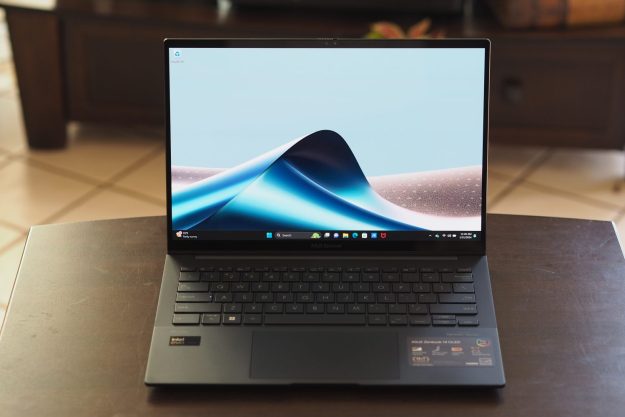
A number of names have popped up in conjunction with Microsoft’s hunt for a CEO, but the front runner at this point seems clear: Stephen Elop. A former head of the Business Division in Redmond, Elop left to become CEO of struggling Nokia, which had seen its mobile phone division crushed by the iPhone and Android.
Though he failed to turn the company around, his decision to sell the smartphone division to Microsoft, along with his prior experience within the company, have made him an obvious candidate. What would Elop do if he did land the top job, and would his guidance really turn Microsoft around?
Cutting the fat
Elop’s time at Nokia was controversial. During his tenure, the company saw its revenue decrease by 40 percent and profits decrease by 92 percent, results that wouldn’t look great on anyone’s resume. On the other hand, Elop did manage to sell of the unprofitable mobile phone business and stabilize other divisions. Some might argue this strategy made the best of a bad situation.
box fans beware; if Elop is hired as Microsoft’s next CEO, it could be bad news for the console.
Rumors have already begun to circulate concerning a potential sale of the Xbox and Bing divisions under his leadership. This would no doubt be a controversial move, but selling them would be consistent with Nokia’s strategy during his tenure. Xbox fans beware; Mr. Elop could be bad news for the console.
Focus on Office
Selling major divisions that don’t pull their weight would likely be part of a master plan that would focus on core products to make them as competitive as possible. Elop did this at Nokia by getting rid of Symbian in favor of an all-out Windows Phone strategy. At Microsoft, however, the core products would be Office and Windows, perhaps in that order.

Besides the continuing to refine Office, under Mr. Elop’s lead, Microsoft would likely seek to expand the software to as many platforms as possible. That means availability of robust versions for iOS and Android, as well as an even greater focus on cloud productivity. If you’re dissatisfied with the selection of Office products for mobile, you may want to hope for Mr. Elop’s ascension to the throne in Redmond.
Even more mobile
Office, of course, isn’t Microsoft’s only product. Elop, having just sold Nokia’s mobile phone business, would partially keep his current job while also becoming CEO of Microsoft. He is uniquely knowledgeable about the business that Microsoft just acquired, which no doubt gives him an edge over other contenders.
If you’re dissatisfied with the selection of Office products for mobile, you may want to hope for Mr. Elop’s ascension to the throne in Redmond.
With that said, it’s unlikely that Mr. Elop would encourage a bloated product line. His strategy at Nokia was to focus on just a small handful of smartphones, and he would probably continue this approach at Microsoft. Windows Phone 8 fans would continue to have a small, but refined, selection of devices.
Wither Windows?
Though Windows 8’s most obvious innovation was the new touch interface, it also marked a change in how Microsoft bundles and promotes its own services. Microsoft started, for the first time, to seriously leverage other businesses like Bing and Skype to add value to the operating system.
This approach might change under Mr. Elop’s guidance, however, because of his desire to focus on core strengths. Selling Xbox and Bing would by itself strip features from the next version of Windows 8, and it’s not clear what, if any, new functionality he would want to add.

With that said, though, what his approach to Windows would be is otherwise difficult to guess. He did not work on Windows during his time at Microsoft, and while at Nokia, he promptly stopped development of Symbian in favor of Windows Phone 8. With so few OS-related decisions to go on, Elop’s Windows strategy is a bit of a wild card.
Rallying the troops
Ballmer has many flaws, but he also had at least one great strength; his ability to rally Microsoft employees. This was possible not only because of his flamboyance, but also because of his history with the company.
Elop could provide a similar boon. Though he’s coming off a stint as CEO of Nokia, he worked in Microsoft’s business division before that. He’s as much of an insider as an outsider can be, and he’d probably fit right in with Microsoft’s existing corporate culture. Though he did gain a reputation for tough talk with his “Burning Platform” memo, Microsoft veterans may respond well to that.
Of course, there are some that might view Elop’s past history within the company as a negative. Rallying employees can be great from a business perspective, but a reinforcement of corporate culture should not be so strong that it resists any outside input. Microsoft is often criticized for being slow to move and unwilling to embrace outside innovation, two traits that the next CEO needs to change.
Conclusion
Elop makes sense from a certain perspective. If his stint at Nokia can be excused as making the best of a bad situation, rather than outright failure, he seems perfect for the job. He has experience with Microsoft, he wants to focus on core products and he has spent the last few years managing a company which just sold its largest division off to Redmond. His greatest fans may be Microsoft purists who believe Windows 8 was a mistake, and that Microsoft Office should be treated like the pillar of the company that it is, instead of holding it back to prop up other faltering projects.
However, completely absolving Elop of blame for Nokia’s problems require some mental gymnastics. And consumers who enjoy Microsoft’s side projects, like Xbox, may not like his decisions. Elop seems likely to be an aggressive, but fundamentally conservative, CEO – but whether that’s what the company needs is another question.
Editors' Recommendations
- 7 things you didn’t know you could do in Outlook
- 6 things you didn’t know you could do in Microsoft Teams
- Microsoft could bring back fan-favorite ergonomic keyboard, other accessories


